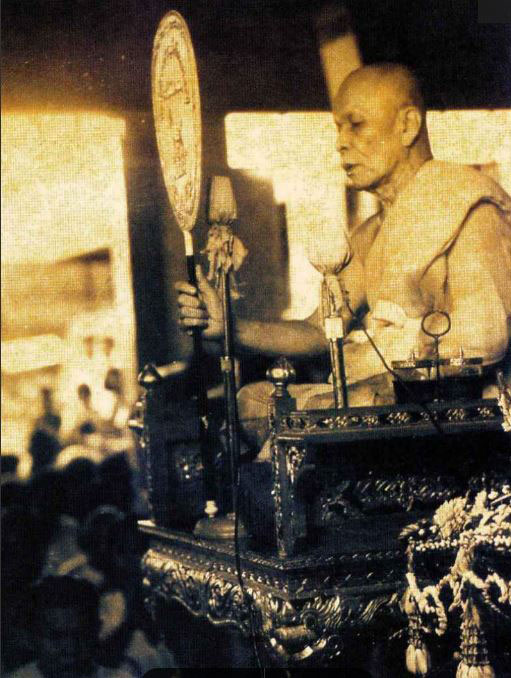
"Who am I? Why was I born? What is the purpose of my life?"
These were the questions Luangpu wanted everyone to ask of themselves. He said:
"This earth is not our permanent abode. It is only a temporary place that we stop by to accumulate merits and perfect our virtues."
Luangpu inspired his followers to cultivate transcendental virtues consisting of generosity, self-discipline, renunciation, wisdom, patience, perseverance, truthfulness, resolution, loving-kindness, and equanimity. These are known as the 'Ten Perfections' ('Parami in Pali). They are the virtues that every Bodhisatta1 has to cultivate to perfection before he can become a Buddha (1Bodhisatta: a Buddha-to-be; one destined to become a Buddha).
An informed Buddhist knows that the principle teachings of Buddhism can be summarized into three main practices: to do good, to avoid bad, and to cultivate the mind. Luangpu taught his disciples to practice generosity as a way to do good, to uphold moral precepts as a way to avoid bad, and to meditate as a way to cultivate the mind.